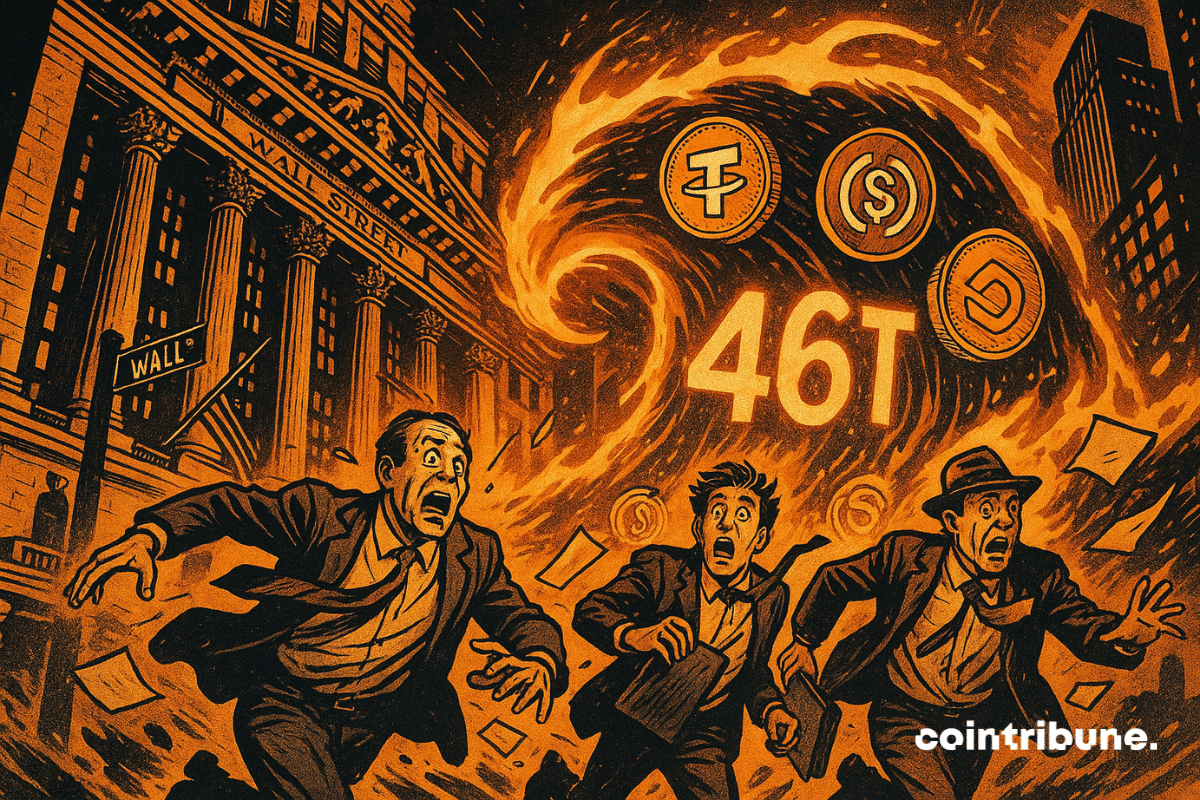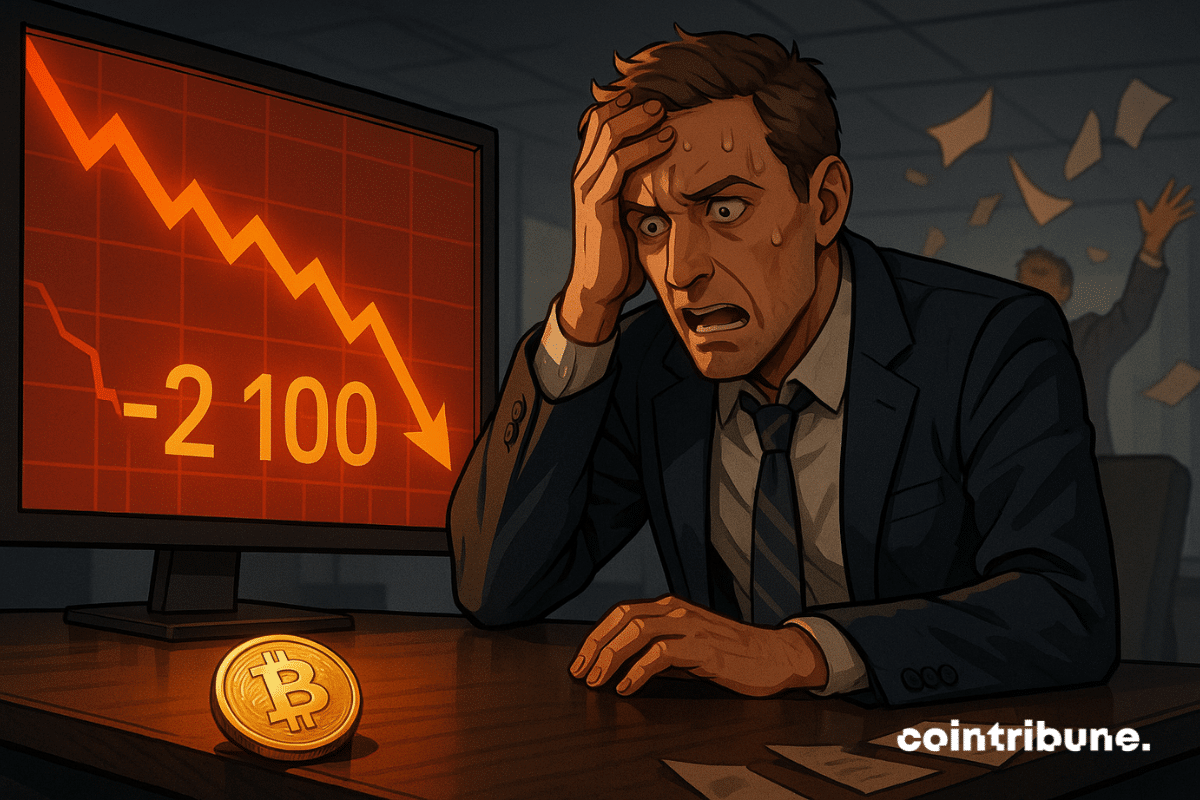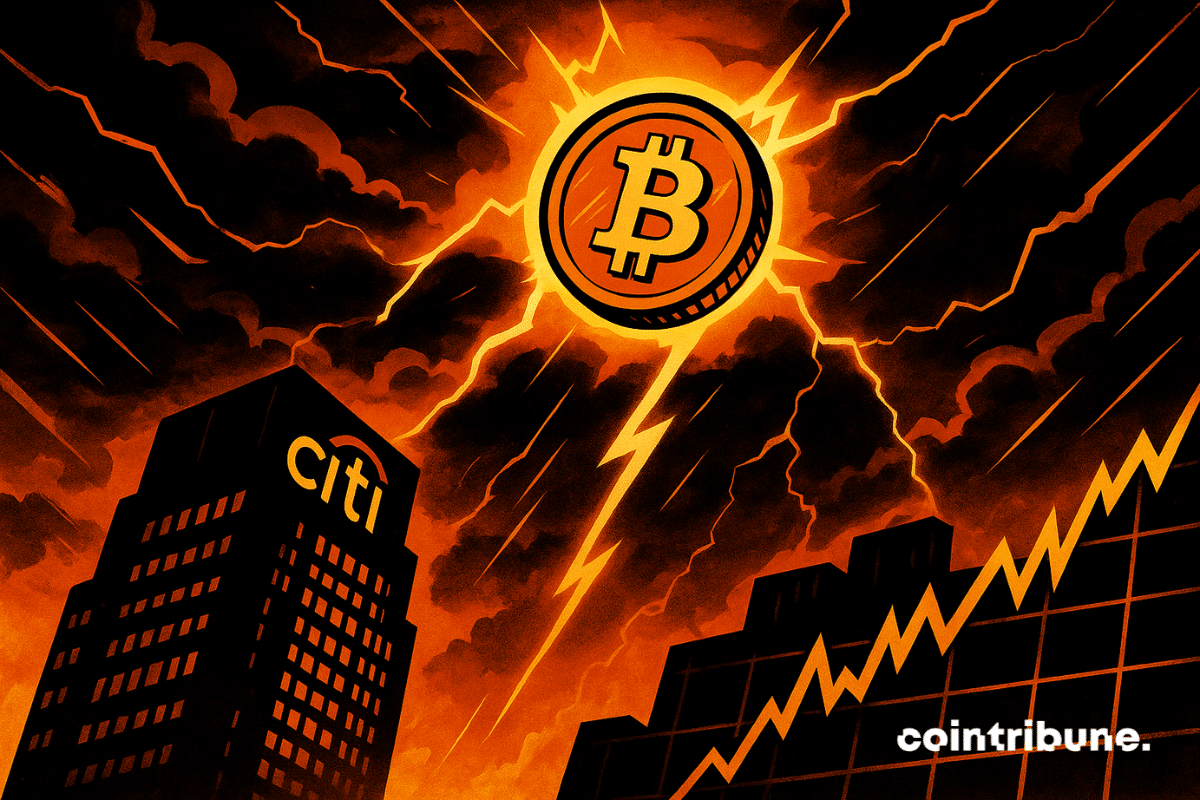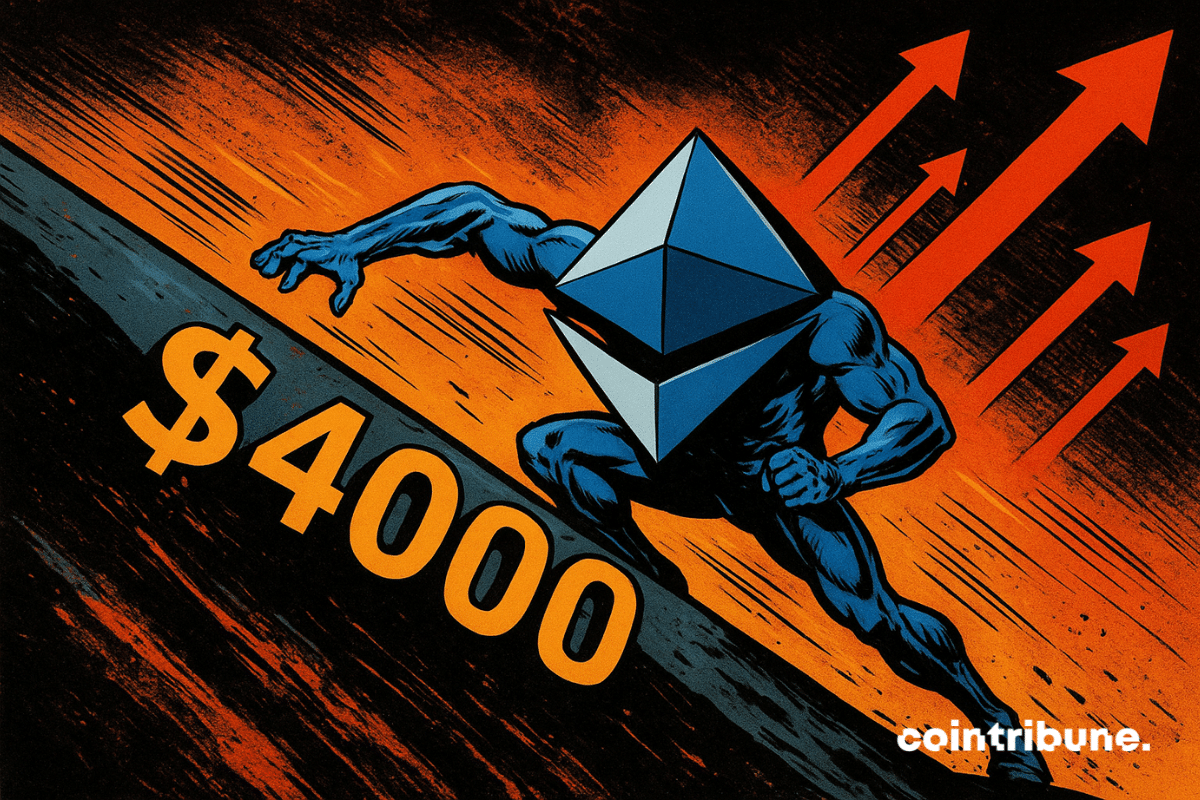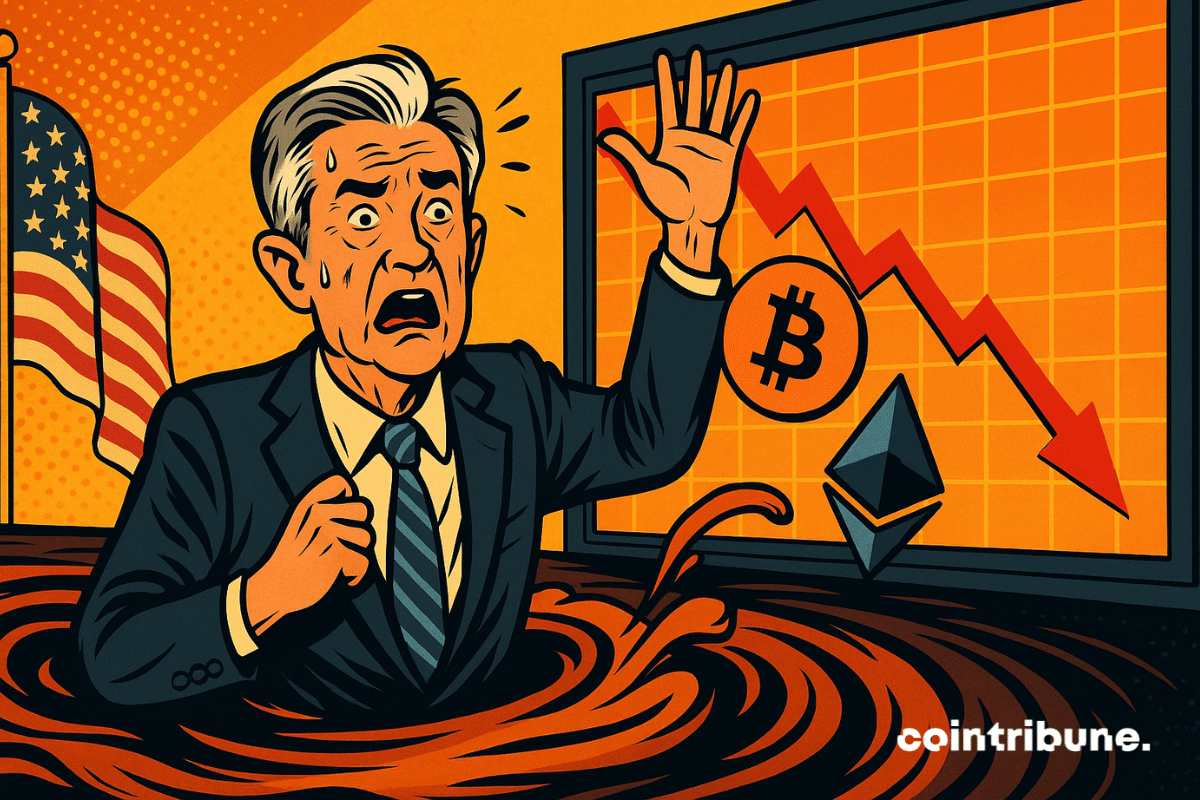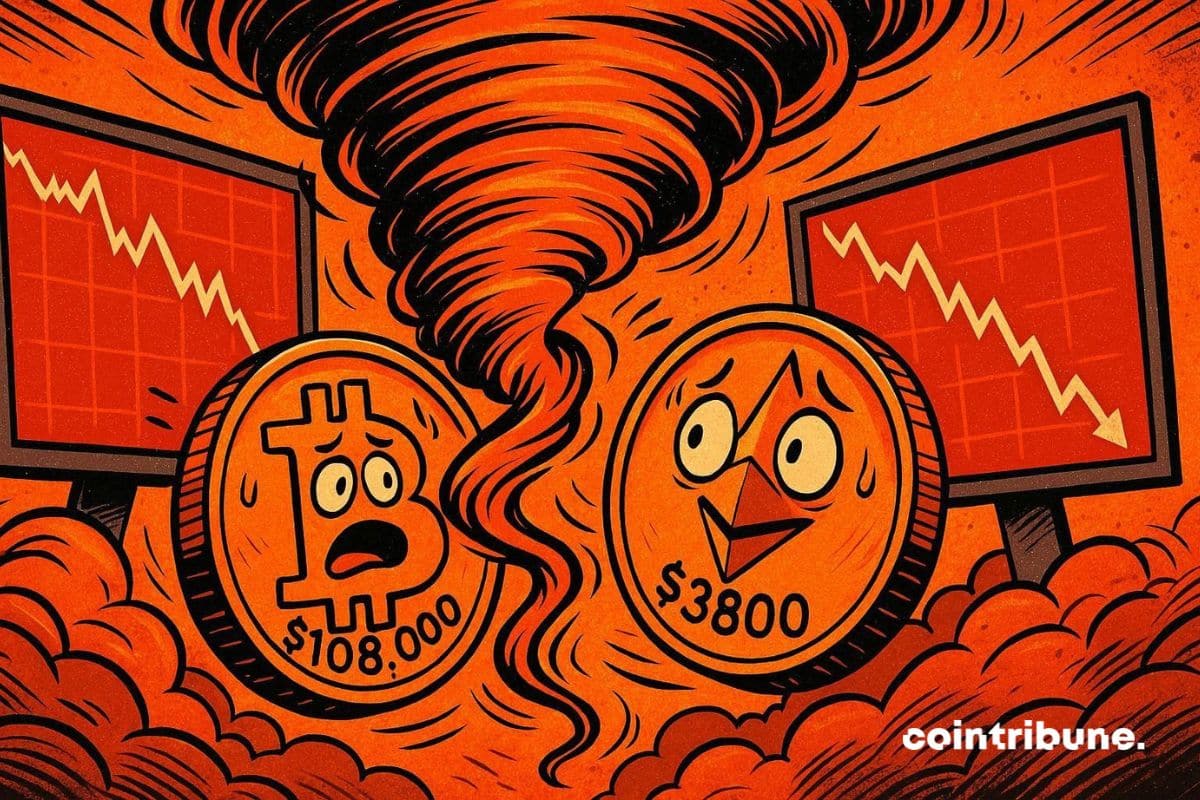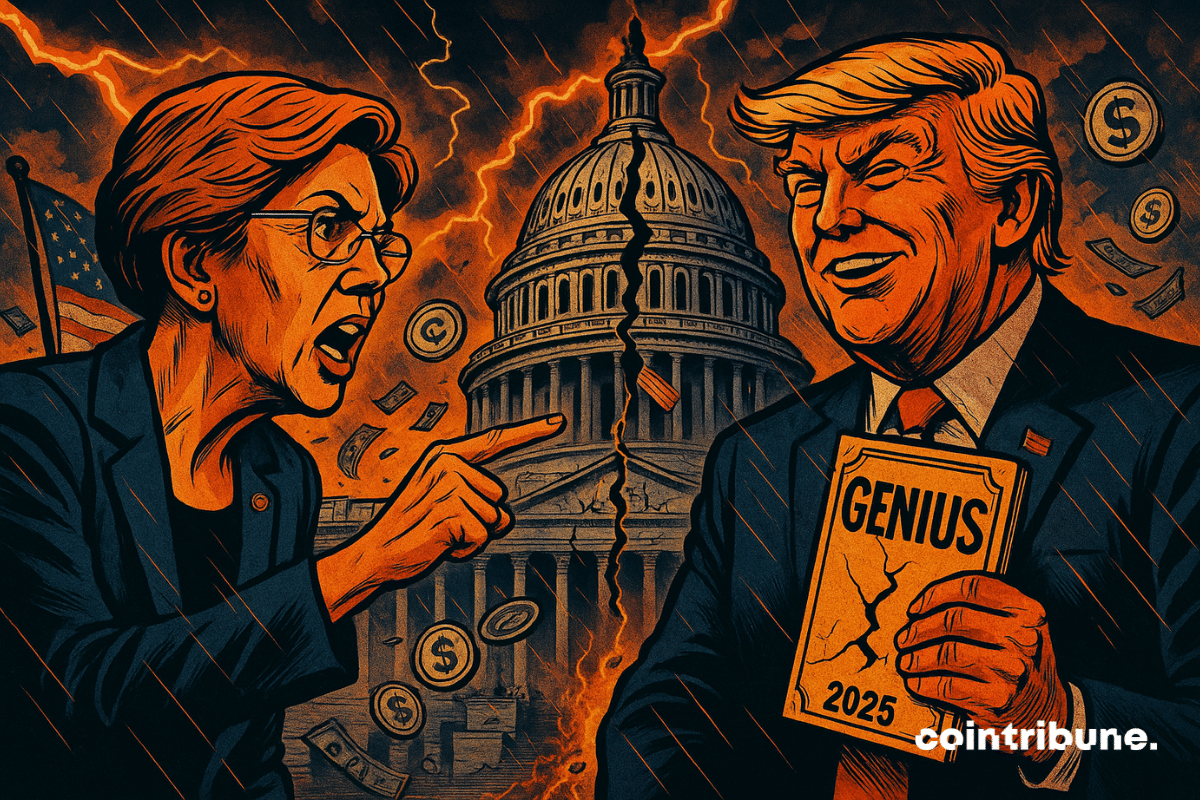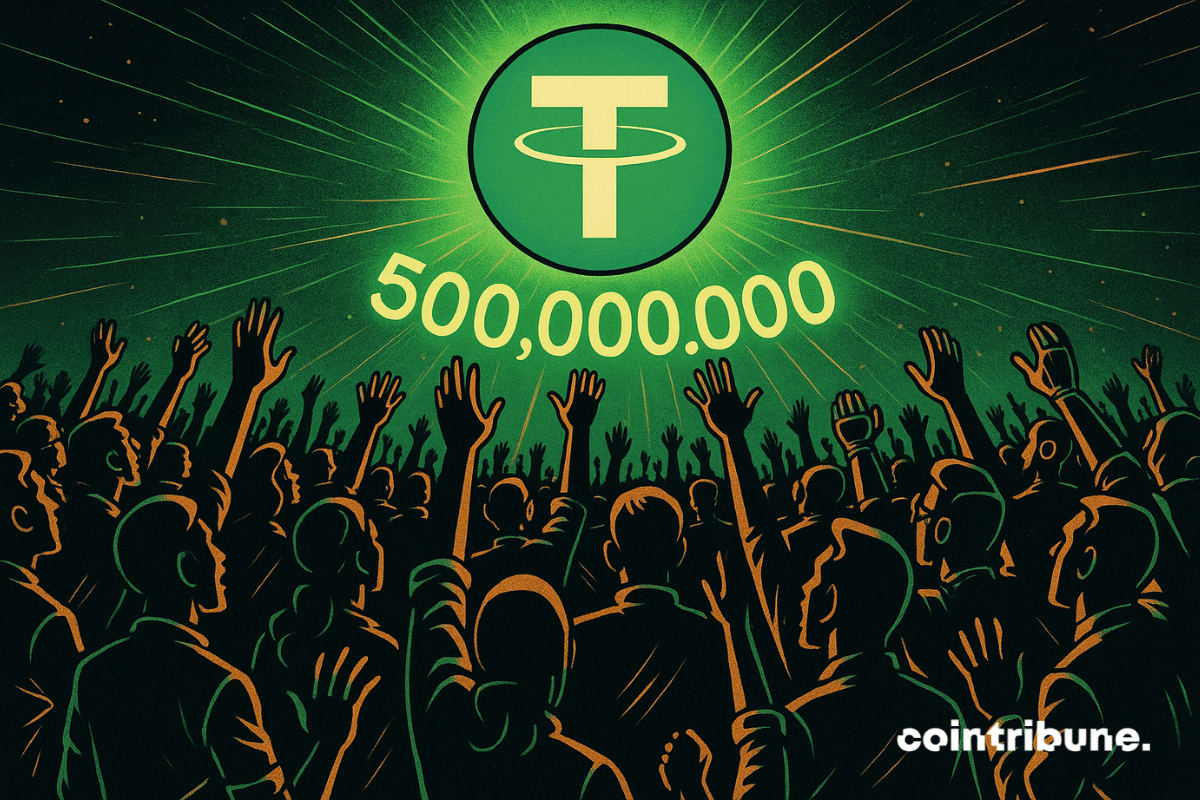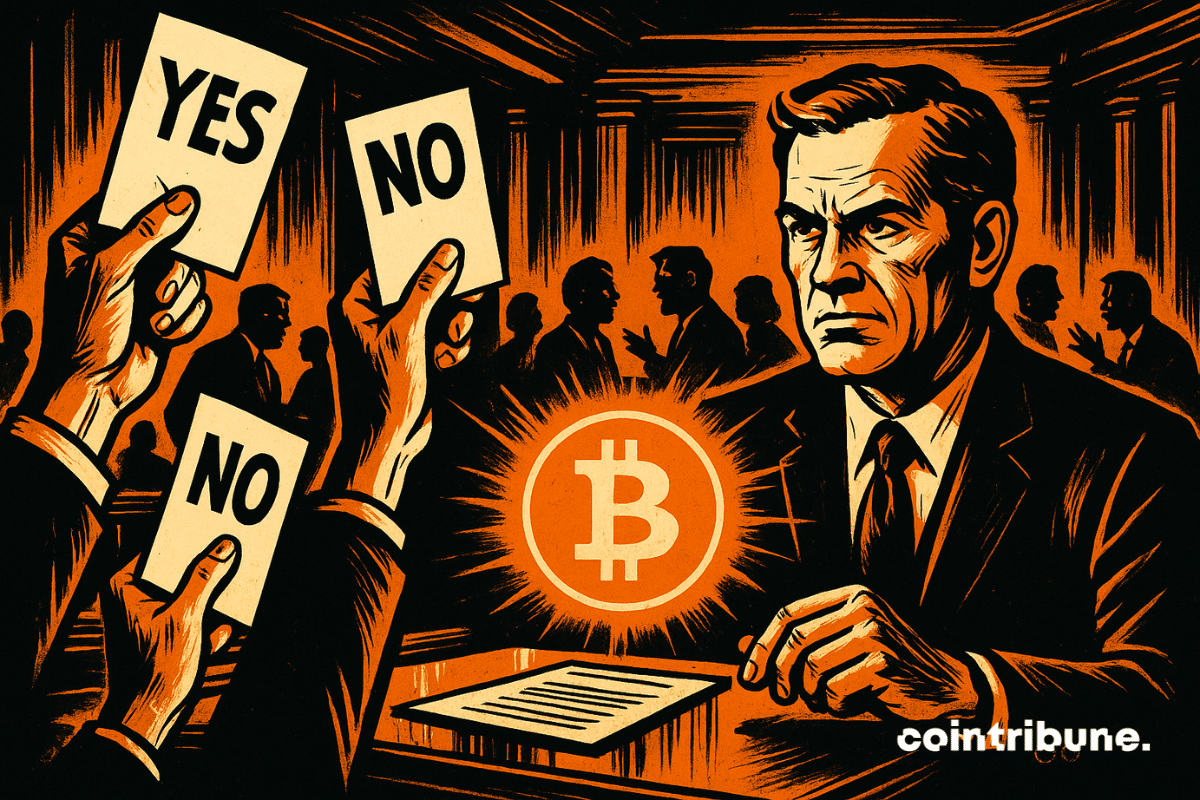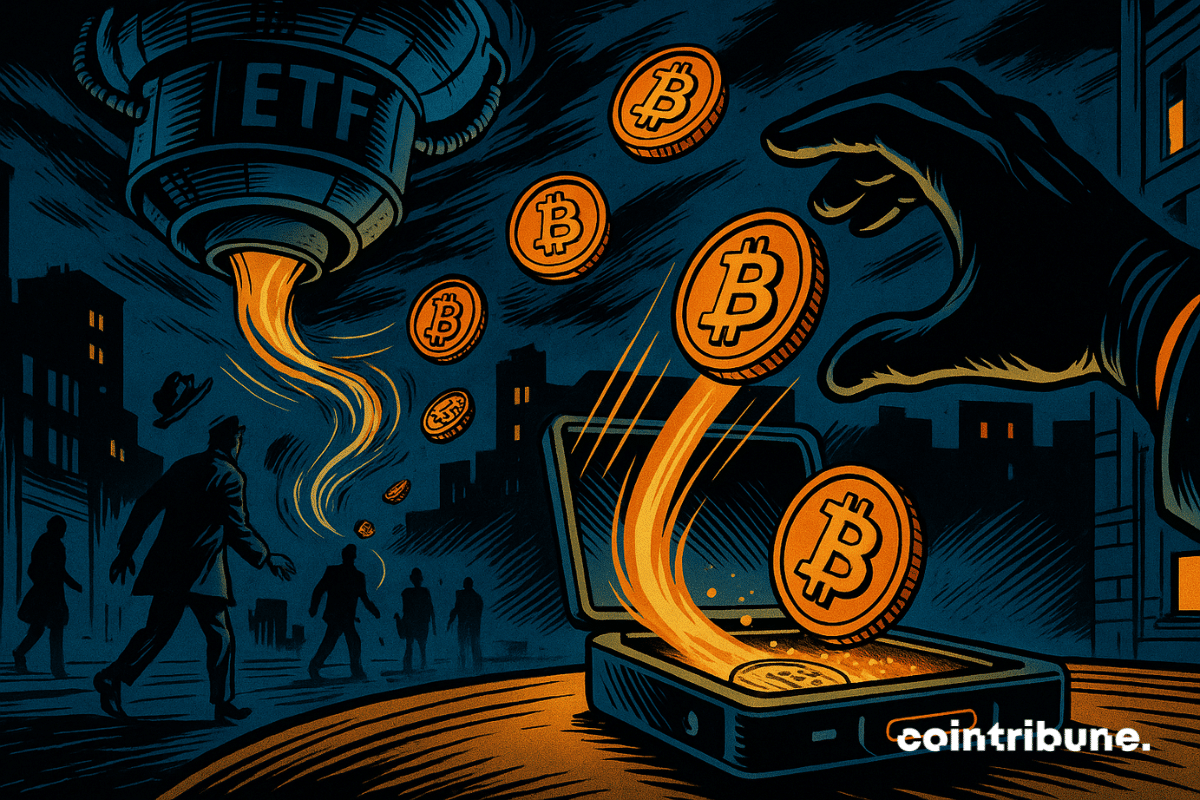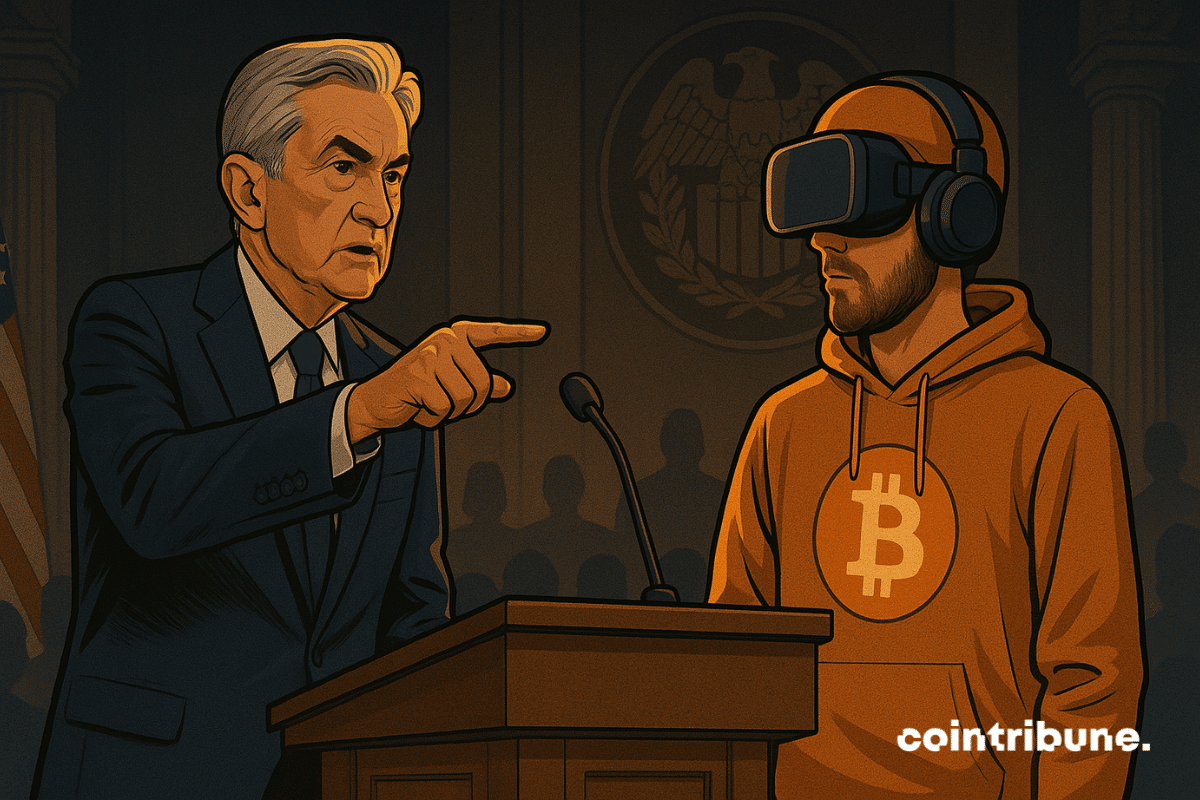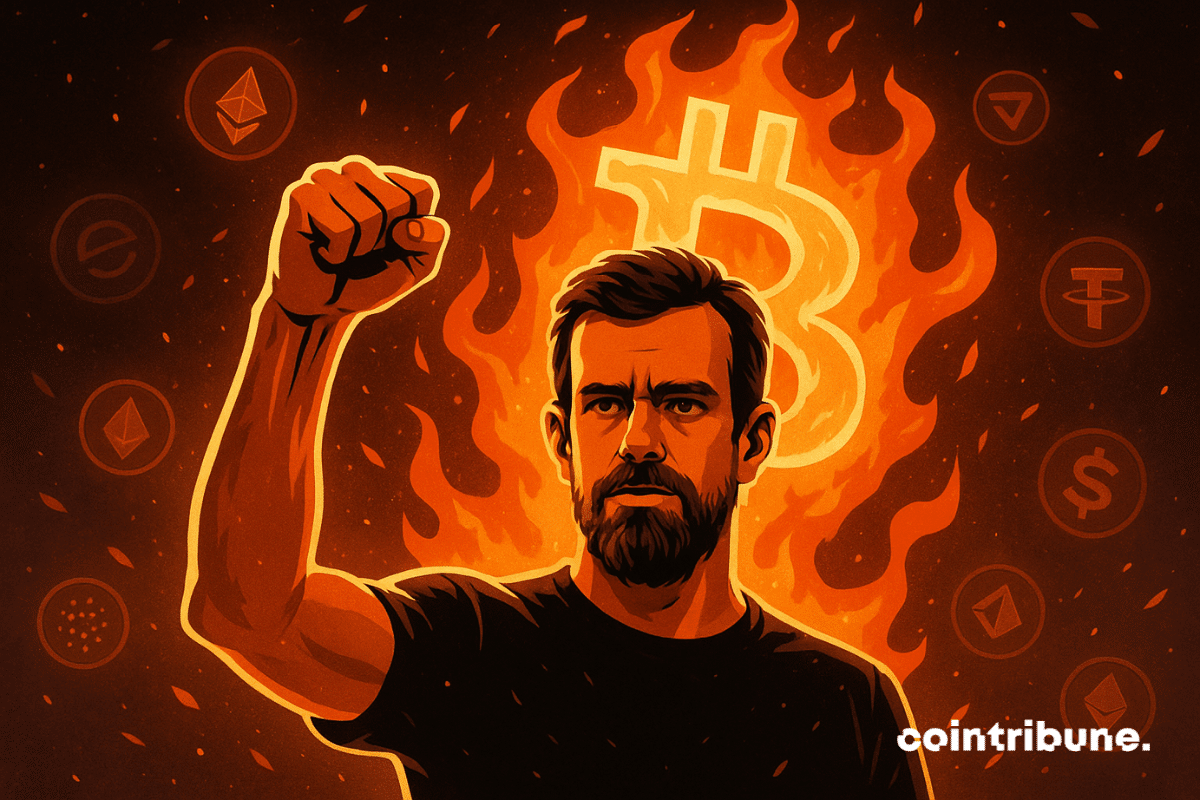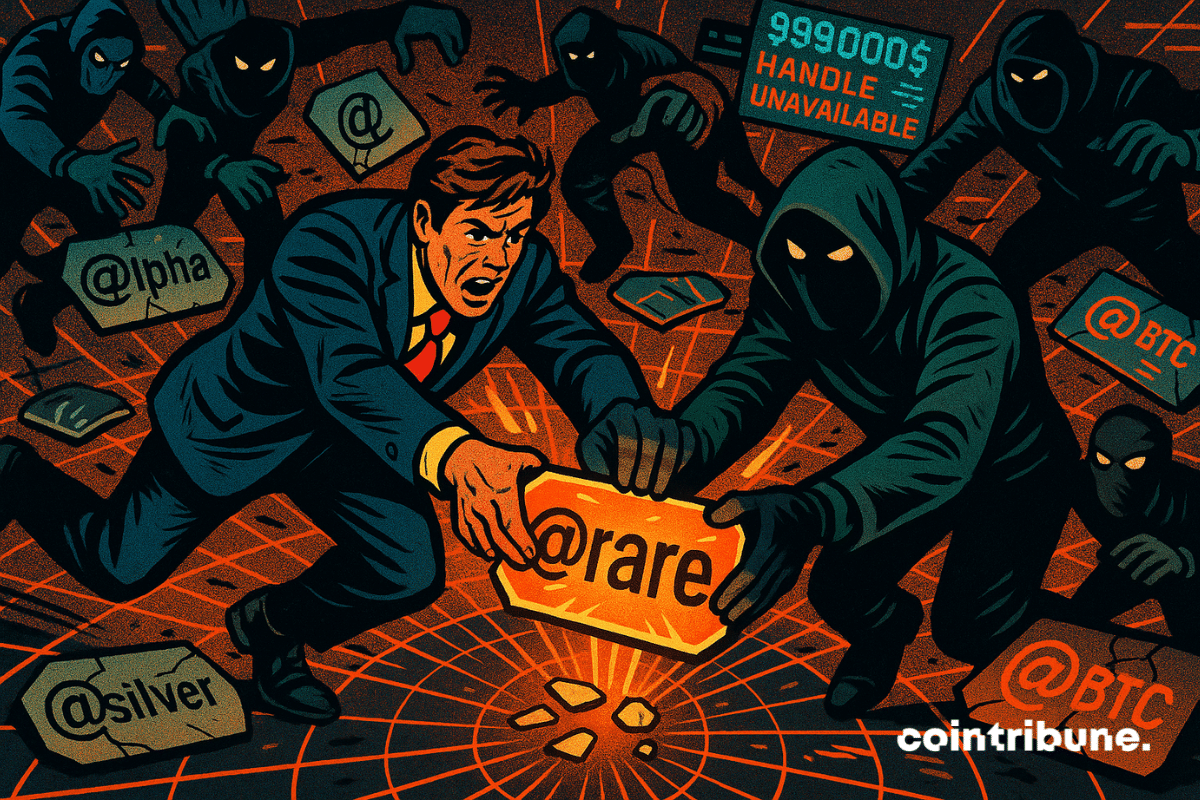OpenAI’s ChatGPT Atlas is a new browser that lets users interact with AI on any website, streamlining tasks while keeping privacy in mind.
Cmc RSS
Aave steps up a gear. Its decentralized autonomous organization (DAO) has just unveiled an ambitious buyback program that could redefine its treasury management. The initiative would transform occasional buybacks into a permanent policy, funded by the protocol's growing revenues. But will this strategy be enough to sustainably support the token against fierce competition in DeFi?
Wall Street trembles, BlackRock applauds, and the dollar digitalizes without asking the Treasury's opinion… Stablecoins are taking hold, while crypto weaves its planetary monetary web.
Google claims to have reached a major milestone in quantum computing. Its Willow processor reportedly performed a molecular modeling task 13,000 times faster than a supercomputer. The announcement, supported by verifiable results, reignites the debate on the security of cryptographic systems. As bitcoin and other protocols rely on algorithms vulnerable to quantum computing, this technical breakthrough turns a theoretical threat into a concrete challenge for the entire blockchain ecosystem.
In one day, gold lost 2.1 trillion dollars, more than half of the crypto market capitalization, causing a real financial earthquake. While Bitcoin briefly took advantage of this drop to cross $104,000, its rise was quickly stopped by sales from major holders. In the end, the yellow metal falters, but the queen cryptocurrency still struggles to establish itself as a real safe haven compared to gold.
Bitcoin-focused company Strategy—formerly known as MicroStrategy—has received a “Buy” rating from Citi, with analysts highlighting significant upside potential for the stock. At the same time, the bank warned that the company’s heavy reliance on Bitcoin could expose investors to sharp price swings.
Ethereum’s latest rally has once again lost momentum, with the cryptocurrency struggling to stay above the $4,000 mark. With weak demand and declining spot ETF inflows weighing on sentiment, analysts warn that Ether (ETH) could face a deeper correction toward $3,100 if buyers fail to regain control.
The US Department of Labor will publish inflation data on Friday despite the government shutdown. An unusual decision five days before the Fed's crucial interest rate decision. Crypto investors are holding their breath.
The real-world asset tokenization (RWA) market is exploding in 2025, surpassing $25 billion in on-chain assets. But while most platforms sacrifice security, trust, or decentralization to move fast, Real Finance arrives with a radically different approach: solving the RWA trilemma. Comparative analysis of an infrastructure that could redefine industry standards.
After months of inactivity, SpaceX transfers $268 million in Bitcoin, drawing attention to Elon Musk’s evolving crypto strategy.
The crypto market is shaking again this October 22: Bitcoin falls below $108,000, Ethereum nears $3,800. After a historic flash crash, what are the reasons for this new shock and should we fear a prolonged downward trend?
The Kadena Organization will no longer maintain its blockchain, causing KDA token to crash nearly 60% as the network shifts to community control.
Trump makes his law, Warren bares her fangs: stablecoins, family deals, and legal loopholes... Behind the scenes of an Act that reeks of the dollar and crypto.
The crypto train is definitely on track, and some believe it's time to get on board. But not everyone is rushing. Some large companies prefer to adjust their trajectory smoothly, first testing the brakes and signals. This is the case for Wise. Known for its regulatory caution, the British fintech today shows the first signs of a strategic turn. A measured change of tone, but with major consequences for the crypto industry.
Solana Mobile turns the page on its first crypto smartphone. The Saga, launched in 2023, will no longer receive updates or security patches. Only two years after its market arrival, the device is abandoned. An early obsolescence that contrasts with the standards of Apple and Google.
Tether claims 500 million users for its stablecoin USDT, hitting an unprecedented milestone in digital finance. Behind this colossal figure, the company asserts its ambition: to become a pillar of global financial inclusion. As USDT establishes itself in daily use, especially in emerging economies, Tether is now extending its influence towards a new strategic area: global regulation. More than a mere record, this announcement marks the rise of a player who has become central to the monetary architecture of Web3.
Ethereum is about to cross a decisive milestone in its technical overhaul. As the deployment of Fusaka approaches, the network is entering the final testing phase of a key update. Behind this discreet change lies a strategic turning point: laying the foundations for parallel execution, expected in 2026. More than just a performance gain, Ethereum is initiating a structural transformation designed to sustainably support its scaling amid growing scalability challenges.
SharpLink Gaming acquired 19,271 ETH for an estimated amount of over 75 million dollars. This operation brings its total reserves to 859,853 ETH, or 3.5 billion dollars as of October 19. The company, listed on the stock exchange and active in the gaming sector, thus becomes one of the largest global holders of Ethereum. In an still uncertain market, this move raises questions about the company's long-term strategy.
Naoris Protocol, the first in production quantum-resistant blockchain and cybersecurity mesh architecture, has announced the launch of Naoris Ventures, a dedicated venture arm driving the adoption of decentralized, post-quantum security infrastructure across critical global systems.
The crypto world is a battlefield where innovation allows no respite. After the meteoric rise of Hyperliquid and the breakthrough of Aster, Solana responds with a project designed for speed and scalability: Percolator. Announced by Anatoly Yakovenko, this new perpetual contracts DEX could reshuffle the decentralized trading cards. Behind the evocative name lies a vision: that of a crypto exchange engine without compromise, where on-chain performance finally meets the simplicity of a centralized exchange.
The US Department of Justice has just made the largest crypto seizure in its history. This digital fortune now triggers an intense political debate: should victims be compensated or should the national strategic reserve be strengthened?
The United States government shutdown is nearing its fourth week, putting pressure on lawmakers to resolve the funding impasse while also addressing key issues in the digital assets sector. As the Senate prepares for another vote to reopen the government, Democratic senators are moving forward with plans to meet crypto executives to discuss the stalled market structure bill.
Dutch neobank bunq is rolling out flexible cryptocurrency staking across the European Union through a partnership with Kraken. The offering covers 20 digital assets with yields up to 10% annually, without mandatory lock-up periods. A first for a European challenger bank.
40 million outflows from Bitcoin ETFs in one day. Should we worry about the momentum of crypto funds? Complete analysis in this article!
Stablecoins are rapidly expanding across Asia as countries explore new regulations and innovation to integrate digital assets with traditional finance.
It's historic. Tomorrow, October 21 in Washington, the US Federal Reserve hosts the elite of the crypto sector for an unprecedented conference on payment innovation. Sergey Nazarov from Chainlink, the heads of Circle, Paxos, and Coinbase: all will be front and center. Stablecoins, tokenization, AI... An agenda that says a lot about the new era the Fed seems ready to embrace.
Jack Dorsey, Twitter’s co-founder and a long-time Bitcoin supporter, has once again sparked debate in the digital finance world. His recent post claiming “Bitcoin is not crypto” has reignited discussion over Bitcoin’s identity—whether it belongs to the broader crypto industry or stands apart entirely.
On X, a simple pseudonym can now be traded at a high price. Elon Musk's platform has just launched a marketplace dedicated to the sale of inactive usernames, with prices reaching one million dollars for the most sought-after. Reserved for Premium subscribers, this initiative transforms digital identity into a monetizable asset.
Hackers disguised as pink rabbits siphon your cryptos through charming tweets. CZ, the former head of Binance, reveals the backstage of a great tense digital circus.
A major outage of Amazon Web Services paralyzed the main crypto platforms on Monday, revealing once again the paradoxical dependence of a sector that advocates decentralization. From MetaMask to Coinbase through Base and OpenSea, malfunctions multiplied throughout the day.


